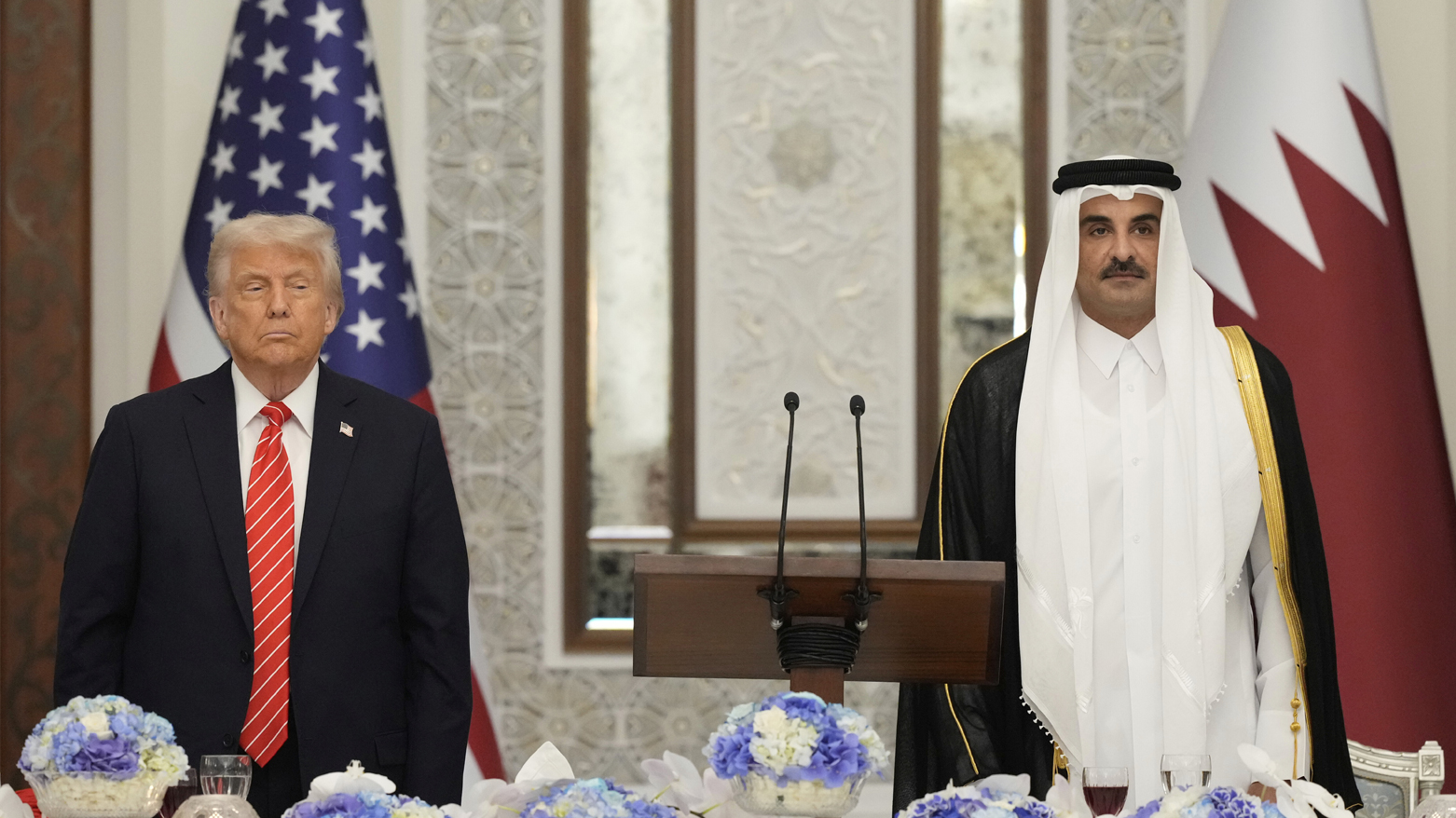White House: U.S. offers security guarantees to Qatar after Israel strikes
The White House announced the US will provide security guarantees to Qatar, pledging to treat any attack on Qatari territory as a threat to America, following Israel's unprecedented strike on Doha earlier this month.

ERBIL (Kurdistan24) – The White House announced on Wednesday, that the United States will formally provide security guarantees to the State of Qatar, pledging to regard “any armed attack” on Qatari territory as a threat to Washington itself. The commitment, enshrined in an Executive Order signed by President Donald Trump, comes in direct response to an Israeli strike on the Gulf Arab state earlier this month, an unprecedented act that has shaken the region’s geopolitical balance.
“In light of the continuing threats to the State of Qatar posed by foreign aggression, it is the policy of the United States to guarantee the security and territorial integrity of the State of Qatar against external attack,” the order read. It affirmed that in the event of an assault on Qatari territory, Washington will “take all lawful and appropriate measures — including diplomatic, economic, and, if necessary, military — to defend the interests of the United States and of the State of Qatar and to restore peace and stability.”
The decision follows the September 9 Israeli strike on Doha, where a series of powerful explosions tore through the capital in what the Israel Defense Forces (IDF) later confirmed was a “precise strike” targeting senior Hamas leadership. The attack struck at the heart of a nation that has long served as a central mediator in the Gaza conflict, hosting Hamas’s political bureau and facilitating sensitive negotiations on ceasefires and hostage releases.
Agence France-Presse journalists on the ground reported hearing blasts and seeing smoke rising above Doha’s skyline at approximately 4:00 p.m. local time. Within minutes, the IDF and Israel Security Agency (ISA) issued a joint statement declaring responsibility for the operation, describing it as part of an ongoing campaign to dismantle Hamas leadership. Israeli Prime Minister Benjamin Netanyahu underscored Israel’s unilateral decision-making, posting on X: “Today’s action against the top terrorist chieftains of Hamas was a wholly independent Israeli operation. Israel initiated it, Israel conducted it, and Israel takes full responsibility.”
The IDF further justified the assault by linking the unnamed targets to the October 7, 2023 massacre and the orchestration of the ongoing war. The military claimed that “measures were taken to mitigate civilian harm,” insisting that precise munitions were used. However, the decision to strike in the capital of a foreign sovereign state not at war with Israel marked a perilous escalation with far-reaching diplomatic consequences.
The Qatari government issued a forceful condemnation, with Dr. Majed Al Ansari, Advisor to the Prime Minister and Spokesperson for the Ministry of Foreign Affairs, describing the assault as a “cowardly Israeli attack that targeted residential buildings housing several members of the Political Bureau of Hamas.”
In his statement, Al Ansari denounced the strike as “a blatant violation of all international laws and norms” and a “serious threat to the security and safety of Qataris and residents in Qatar.” He emphasized that security and civil defense authorities had acted swiftly to contain the incident and safeguard civilians, but warned that Qatar “will not tolerate this reckless Israeli behavior and the ongoing disruption of regional security, nor any act that targets its security and sovereignty.”
While investigations continue, the Qatari Foreign Ministry has stressed that the attack undermines Doha’s role as a mediator and threatens the fragile framework of diplomacy that has thus far enabled humanitarian negotiations in the Gaza war.
In an unexpected reversal, Prime Minister Netanyahu personally telephoned the Qatari prime minister from the White House on Monday, issuing an apology for the strike and pledging not to repeat such actions. The United States confirmed the call, noting that Netanyahu had been in Washington to meet with President Trump and had previously remained defiant since ordering the September 9 operation.
The apology followed weeks of international outrage and concern that Israel’s military action on Qatari soil could unravel the last channels of negotiation between Israel and Hamas.
Qatar remains one of the United States’ most vital partners in the Gulf, hosting the al-Udeid Air Base, the largest American military installation in the region and the forward headquarters for elements of U.S. Central Command. The executive order signed by Trump underscores this strategic reality, with Washington making clear that Qatari security is inseparable from American regional interests.
The move also reflects the gravity of the Israeli strike, which targeted Hamas negotiators who had been engaged in discussions on a U.S.-brokered Gaza peace proposal. According to Reuters, the Hamas delegation survived the attack, though details of casualties and damage remain unclear.
Despite the apology, members of Netanyahu’s government openly praised the September 9 operation. Israeli Finance Minister Bezalel Smotrich declared on X: “Terrorists have no and will have no immunity from the long arm of Israel anywhere in the world. A correct decision we made and perfect execution by the IDF and Shin Bet.”
This rhetoric reflects Israel’s strategic calculation that the elimination of Hamas leaders outweighs the diplomatic risks of conducting military action in the capital of a Gulf ally.
The attack has thrown into question Qatar’s future role as a neutral mediator. For years, Doha has served as the hub of indirect talks between Israel and Hamas, often in coordination with the United States and Egypt. The strike on Qatari soil threatens to upend this role, casting uncertainty on whether future negotiations can continue in Doha.
The White House’s unprecedented security guarantees to Qatar signal Washington’s determination to preserve its alliance with Doha despite Israeli actions, while attempting to stabilize the situation and prevent further escalation. The executive order also highlights the United States’ recognition that Qatar’s sovereignty and stability are indispensable for maintaining its military and diplomatic footprint in the Middle East.